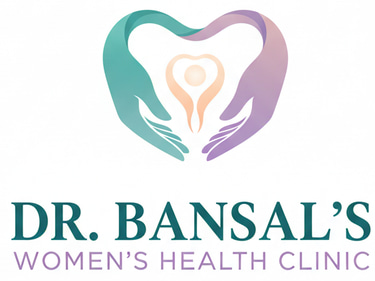Preeclampsia / Eclampsia Treatment in Indore
Dr Bansal's Women's Health Clinic
Preeclampsia / Eclampsia — Description
Preeclampsia is a condition related to pregnancy, characterised by high blood pressure and protein in the urine, occurring after 20 completed weeks of gestation. If left untreated, it could progress to eclampsia, which includes seizures, posing serious risks to both the mother and baby.
Common preeclampsia signs and symptoms include:
Hypertension
Swelling of hands, feet, or face
Sudden weight gain
Headache
Visual disturbances (blurred vision, flashing lights)
Abdominal pain or nausea
Risk factors include:
First pregnancy or pregnancy with a new partner
History of preeclampsia in previous pregnancies
Multiple pregnancy (twins, triplets)
Chronic hypertension, diabetes, kidney disease, or autoimmune disorders
Obesity or over age 35
Prevention of Preeclampsia / Eclampsia — Description
Though it is not possible to completely prevent preeclampsia, some measures can help reduce the risk and enable early detection:
Key Prevention Measures:
Regular prenatal care:
Close monitoring of blood pressure, urine protein, and fetal growth.
Early detection of symptoms allows timely intervention.
Healthy lifestyle during pregnancy:
A diet balanced with fruits, vegetables, whole grains, and low in salt.
Regular moderate exercise, as recommended by the health care provider.
Maintain a healthy body weight.
Manage pre-existing conditions:
Control chronic hypertension, diabetes, or kidney disease before and during pregnancy
Low-dose aspirin (if advised):
Sometimes prescribed for women at high risk of preeclampsia, under medical supervision.
Avoid harmful substances:
Smoking, alcohol, and recreational drugs increase the risk and should be best avoided.
Education and awareness:
Watch for and seek immediate medical care for signs and symptoms such as severe headache, visual changes, sudden swelling, or high blood pressure.
Wellness
Empowering women through holistic health solutions.
Contact
Support
(+91) 8871751510
© 2025. All rights reserved.
